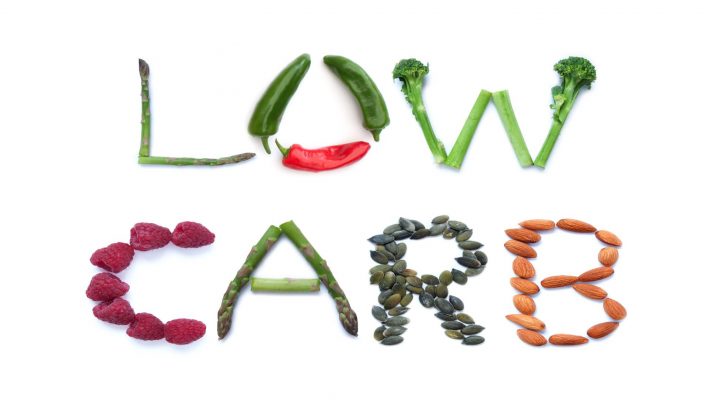Uncategorized
Are Low Carb Diets Healthy?
Low carbohydrate diets have gained momentum over the last few years and have demonstrated real potential as therapeutic options for a number of chronic conditions such as managing insulin resistance, metabolic syndrome, type 2 diabetes, supporting cardiovascular health, weight loss / weight maintenance and more.
Furthermore, very low carbohydrate diets such as the Ketogenic diet are being studied in neurodegenerative conditions such as Alzheimer’s disease, some forms of cancer and type 1 diabetes.
Ketogenic diets are not new, in fact they have been considered a potential therapeutic option in some forms of epilepsy since the 1920s. Whilst the concept of low carbohydrate diets is not new, both their popularity and potential scope of therapeutic application has expanded significantly in recent years. And as interest has increased, so too has the amount of information written and spoken on them.
This is great news if you’re looking for resources, recipes and to dive into lots of emerging research and a wide range of thought-provoking viewpoints on the subject – but not so great if you’re looking for clear and simple answers.

Still relatively new to the mainstream, Low Carb and Ketogenic diets are a hotly-debated topic in the nutrition and medical worlds. Scientific debate is important for progress but science isn’t black and white and we must always be open to new ideas. We now live in a world of heavily refined processed foods, often high in sugars and fats which are probably responsible for many of the modern health diseases and obesity with see today – so it’s certainly important to stay open minded to the potential benefits of a lower carbohydrate approach.
Low Carb the Basics
The main aim of a low carbohydrate approach is to minimise sugars in the diet. In simplified terms, this is because when we over-consume carbohydrates (particularly refined, processed and starchy carbs), and high levels of insulin are released (insulin is released in relation to sugar being recognised in the blood stream), fat oxidation (burning / breakdown) is turned off and fat storage is stimulated. Yet when we stop eating lots of carbs and insulin levels are lower, the opposite happens; fats come out of storage and can become fuel i.e you break down fat!
If insulin levels are consistently elevated (from continued consumption of carbohydrates), it can cause weight gain, inflammation, high blood pressure and unfavourable changes in blood fat levels. Over time, high insulin levels can lead to insulin resistance, where the body’s cells become resistant to the actions of insulin which may eventually progress to type 2 diabetes.
Insulin is mainly released in response to carbohydrate consumption – the higher the carb levels in the diet, and the more refined and sugary they are – the more insulin is released. The aim of reducing carbohydrates is therefore to support reduced insulin levels and improve your health.
Lower carbohydrate diets contain varying degrees of fewer carbohydrates and higher proportions of protein and fat. For example, some people choose a minimal reduction in carbohydrates:
A moderate low carb diet may aim for less than 100g carbs / day.
A low carb diet is usually less than 50g / day
A very Low Carb / Keto diet less than 20g / day (about an apple a day!)
• As you can see, levels of carbohydrate reduction are highly variable. And there is debate over the relative ratios of macronutrients; i.e. whether a low carb diet should be higher in protein or fat?
Generally speaking, a lower carb higher protein (LCHP) diet may have the edge when it comes to optimal weight loss, whereas a lower carb higher fat (LCHF) diet may be preferential for an optimal way to fuel the body. What is more generally agreed upon is that a combination of high carb & high fat is best avoided. In reality, this wide-ranging variation simply demonstrates that we are all unique, that one size does not fit all and that a flexible, personalised approach is best.

Low Carb – Additional Factors to Consider
One size does not fit all
As with all aspects of diet and nutrition, there is no one size fits all approach to low carb; some people may do brilliantly on a ketogenic diet, others may benefit from a slight reduction in dietary carbohydrates and still others may thrive on something different. Everyone has a different starting point and unique health goals, and personalised nutrition is still key for optimal health outcomes.
If you are exercising regularly then you will probably need a moderate carb to high carb intake depending on how intense or regularly you are exercising – you burn carbs during exercise so need to replenish otherwise you will continually crave carbs and not realise why!
If you aren’t exercising much then you may be okay on a low carb or very low carb diet.
Consider gut health
Some people experience improved gut health on a lower carbohydrate diet. Yet others are concerned that low carb and particularly ketogenic diets may impact the gut microbiome when carbohydrates are restricted. This would really come down to trial and error and be dependent very much on the individual case.
Diversity is key
Whether low carb or not, dietary diversity (especially of a wide range of plant foods) is a key tenet of any healthy diet, especially for nurturing a thriving internal ecosystem of gut microbes. And it remains important to pay attention to dietary diversity whatever diet you are following.
Fat is your friend
Prominent nutrition and obesity researcher and author Dr Zoe Harcombe has said, “the demonisation of fat has had inevitable consequences for the consumption of carbohydrate”.
Which basically means fat has received such bad media attention over the years that virtually the entire human race has been pushed in to eating a high carb / highly refined carbohydrate diet!
Therefore, after so many years of ‘fat is bad for you’ public health messages, it’s still taking time to re-educate people on the benefits of including good quality fats in their diets. In choosing ‘low fat’ options, many end up over-consuming carbohydrates, in part because many ‘low-fat’ options are loaded with refined sugar and sweeteners, and also because fat helps to fill you up – take out the fat and you may be affecting your satiety.
Whether low carb or not, healthy fat needs to be put back on the menu.
Reducing refined & processed foods, sugary foods, drinks and snacks is a good idea for everyone and should be your staring point as for many this may give you the results you desire.
Dietary quality is key
The underlying message is that focusing on eating fresh, natural food is NUMBER 1 PRIORITY for everyone, before considering a Low Carb / Keto diet.
Many people find a mix of low carb and moderate carb intake days the best way forward, this allows for fat burning processes to occur and then gives you some flexibility particularly around social eating. Your diet should be varied to ensure you are consuming a wide variety of vitamins, minerals and phytonutrients (nutrients in plants)
You can read more about calorie counting here if you wish to go down that route, this is a great starting point for anyone wanting to lose weight

